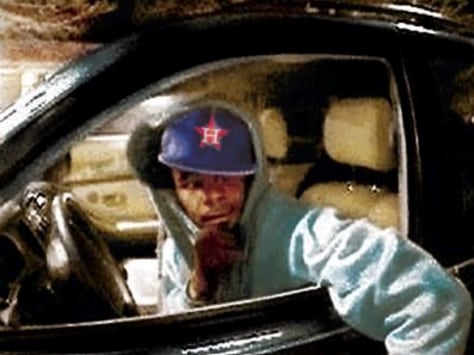This page contains responses to portions of an article on juvenile LWOP in NC. Responses are in bold.
“Cooper’s executive order coincides with a legislative push to consider eliminating life without parole sentences for those who are convicted as children.”
First, teenage murderers are not “children.” As explained on this page, calling teen killers “children” demeans the crimes and paints an inaccurate picture of the offenders.
“In a recent meeting on the bill, a member of the North Carolina Conference of District Attorneys read aloud the grisly details of a murder committed by a child over 10 years ago in a testimony opposing the bill.”

NOVJM provided written testimony for that meeting. One story we mention in our testimony, and the story told by the North Carolina Conference of District Attorneys representative, is that of Eve Carson, the UNC-Chapel Hill student body president who was kidnapped, robbed, terrorized, and murdered by two young men in 2008. Can the article at least say her name?

Again, Laurence Lovette, the juvenile killer, was not a “child.” He was 17. He was old enough to understand the wrongfulness of such a senseless murder. Calling him a child demeans his actions and the pain those actions inflicted upon Eve. As Eve was being held hostage in her own car, she would not have been thinking of one of her captives as a “child.” “Children” don’t commit murders involving, by the author’s own admission, “grisly details.”
“’I am always struck by the willingness to let the exceptions to the rule drive policy,’” Finholt said. “’We have to say we’re not going to make this a hopeless situation for people. We’re not going to let the worst folks drive policy. We’re going to practice what we preach when it comes to forgiveness and rehabilitation. Because otherwise it’s just a totally broken system.’”
First, Lovette is not an exception. Due to N. Carolina law, and Supreme Court rulings, anyone in NC doing LWOP for a crime committed as a juvenile has had a sentencing or re-sentencing hearing. The sentencing authority considered their youth and determined that the heinousness of the crime warranted LWOP. Also, NC law only allows juvenile LWOP for first-degree murder convictions. First-degree murder convictions that arouse out of the felony murder rule cannot result in LWOP. So anyone in NC who gets LWOP for a crime committed as a juvenile committed premeditated first-degree murder.
Second, we should consider the very worst cases when making policy decisions. We can’t ignore them just because they are rare. The very worst cases would have been impacted by HB 424 and therefore should have been considered. To not consider cases that could be impacted by a potential law is irresponsible.
And if we can’t let the very worst offenders drive our policy, then we can’t let the very best offenders drive our policy. So HB 424 advocates can’t use stories of juvenile criminals becoming upstanding citizens to advance their agenda, as those stories are also rare.
You know what’s a broken system? One that retroactively reduces sentences, allowing the evilest criminals to obtain release.





